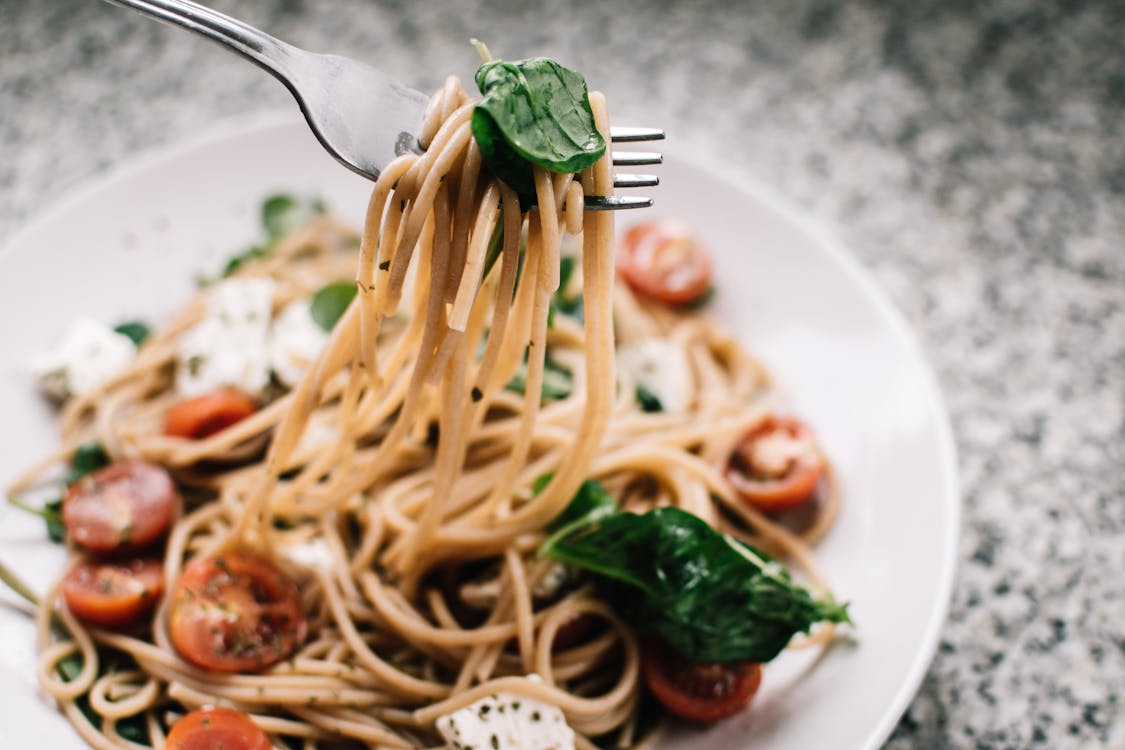Are you curious about what fuels the world’s top football players? This guide breaks down the daily diets of professional footballers, highlighting the key nutrients and eating strategies they use to optimize performance. Discover how they use nutrition to stay at the top of their game, and how you can apply similar principles to your own fitness goals. Check out CAUHOI2025.UK.COM for more detailed nutrition plans, supplement guides and healthy eating advice!
1. The Evolution of a Footballer’s Diet
Gone are the days of pre-match fry-ups and post-match pies for footballers. Today, nutrition is a science, with diets meticulously tailored to meet the demands of the game. Top clubs employ nutritionists who use sports science to create balanced diets for each player. This focus on nutrition is crucial for maintaining peak performance and ensuring players stay healthy throughout the season. For those in lower leagues or aspiring to improve their game, understanding these principles is key to maximizing potential.
2. Key Components of a Football Player’s Diet
A footballer’s diet isn’t a one-size-fits-all approach. It varies based on factors like body weight, height, body fat percentage, and playing position. Midfielders, for example, cover more distance than strikers, requiring different nutritional intakes. However, some core elements are essential for all players.
2.1. Carbohydrates: The Primary Fuel Source
Carbohydrates are the primary energy source for footballers. They replenish glycogen stores, which are rapidly depleted during intense exercise. Professional players focus on complex, unrefined carbohydrates, including:
- Whole grains: Whole wheat bread, pasta, and brown rice
- Vegetables: Broccoli, bell peppers, potatoes (both regular and sweet), and peas
- Fresh fruit: Apples, pears, bananas, and blueberries
- Legumes: Lentils, kidney beans, and black beans
- Dairy: Low-fat milk and Greek yogurt
According to a study published in the “Journal of Sports Sciences,” adequate carbohydrate intake is crucial for maintaining performance and preventing fatigue during prolonged exercise.
2.2. Protein: Muscle Building and Repair
Protein is vital for muscle development and repair, essential for footballers enduring rigorous training and matches. High protein intake helps players maintain form, build muscle, and recover effectively. Key protein sources include:
- Poultry
- Lean red meats
- Beans
- Eggs
- Fish
Many players also use protein shakes to meet their daily protein targets, especially pre-match when large meals can cause discomfort. Protein shakes offer the same nutritional benefits without the digestive burden.
2.3. Fats: Essential but Controlled
While “fat” often carries negative connotations, healthy fats are essential for nutrient absorption and overall health. The key is moderation. Footballers focus on monounsaturated fats and omega-3 fatty acids, found in foods like:
- Olives
- Avocado
- Nuts (walnuts, almonds, cashews)
- Seeds (sunflower, flax, chia)
- Fatty fish (salmon, tuna, trout)
According to the American Heart Association, these fats support heart health and can reduce inflammation, beneficial for athletes undergoing intense physical activity.
2.4. Vitamins and Minerals: Supporting Health and Performance
Vitamins and minerals, though not energy providers, are crucial for a player’s health and performance. A balanced diet usually provides these, but common deficiencies include:
- Iron
- Zinc
- Calcium
- Magnesium
- Vitamin B12
These deficiencies can impair cardiovascular function, endurance, bone density, and immune function. To combat these risks, footballers often take daily multivitamins. A study by the National Institutes of Health found that athletes with adequate vitamin and mineral levels experience better overall performance and recovery.
2.5. Hydration: Maintaining Peak Condition
Hydration is paramount. A footballer can lose over a liter of sweat during a 90-minute match. Dehydration can lead to decreased cognitive function, reduced aerobic capacity, and lethargy. Players typically follow a strict hydration protocol:
- Drink 500ml of water upon waking
- Consume 2000-2500ml of water daily
- Drink 1000ml of water per hour of exercise
- Monitor body weight before and after exercise
Many players also use sports drinks for hydration, which provide carbohydrates and electrolytes to fuel performance.
3. The Role of Supplements
Supplements are common in modern football, helping players manage their nutrition precisely and conveniently. Common supplements include:
- Protein: For muscle building and recovery
- Energy gels: For boosting energy with electrolytes and carbohydrates
- Sports drinks: For hydration and electrolyte balance
While a balanced diet is fundamental, supplements offer a practical way to meet specific nutritional needs.
4. A Footballer’s Diet on Match Day
A professional footballer’s diet is rigorously planned every day, but it’s crucial on match day. Each player has their own routine, but a general overview follows, using a 3 PM kickoff as an example.
4.1. Breakfast: Setting the Stage
Breakfast starts with 500ml of water to rehydrate. Players typically choose porridge or eggs, varying grains and egg preparations to maintain interest and ensure they get a nutritious start. They often avoid high-fiber or heavy breakfasts that can cause bloating.
 Oatmeal for breakfast
Oatmeal for breakfast
4.2. Lunch: Light and Energizing
With a 3 PM kickoff, lunch is light, focusing on slow-releasing energy from low-GI carbohydrates like wholegrain pasta and rice to avoid discomfort during the match.
 Pasta Lunch
Pasta Lunch
4.3. Pre-Match Nutrition: The Final Preparations
The hour before the game is critical for maintaining glucose levels, amino acids, and hydration. Players focus on:
- Protein: 20-25g, often via a protein shake for easy digestion.
- Carbohydrate: 30-60g, typically from gels or powdered drinks.
- Hydration: Water or hydration supplements to prevent dehydration.
Some players also use caffeine and creatine to enhance performance.
 Protein Shake
Protein Shake
4.4. In-Game Nutrition: Maintaining Energy Levels
During halftime, players rehydrate with water and energy gels to replenish glycogen stores and maintain energy for the second half.
 Energy Gels
Energy Gels
4.5. Post-Match Nutrition: Recovery is Key
Post-match nutrition is essential for recovery, preventing prolonged recovery times and issues in subsequent training sessions. Players concentrate on the three “Rs”:
- Rehydrate: Consume fluids to restore fluid balance, aiming for 1000ml of water per hour of exercise.
- Replenish: Replenish glycogen stores by meeting a specific carbohydrate intake for the day, achieved through meals and supplements.
- Repair: Consume adequate protein to stimulate muscle protein synthesis (MPS) for muscle recovery and growth.
5. Optimizing Your Diet for Football Performance
Following the dietary habits of professional footballers can significantly improve your performance on the field. By focusing on balanced nutrition, strategic supplementation, and proper hydration, you can enhance your energy levels, muscle recovery, and overall endurance. For more personalized advice and guidance, consider exploring the resources available at CAUHOI2025.UK.COM. Our team of experts can help you create a tailored nutrition plan that aligns with your specific goals and needs.
6. Footballer Diet: Sample Meal Plan
Here is a sample meal plan for a footballer, based on the principles discussed above:
| Meal | Food | Nutrients Focus |
|---|---|---|
| Breakfast | Oatmeal with berries and nuts, eggs | Complex carbohydrates, protein, healthy fats |
| Mid-Morning | Greek yogurt with fruit | Protein, carbohydrates |
| Lunch | Grilled chicken salad with mixed greens and avocado | Lean protein, healthy fats, vitamins and minerals |
| Pre-Training | Banana and protein shake | Quick-releasing carbohydrates, protein |
| Post-Training | Chicken breast with brown rice and steamed vegetables | Lean protein, complex carbohydrates, vitamins and minerals |
| Dinner | Baked salmon with quinoa and roasted vegetables | Omega-3 fatty acids, complex carbohydrates, protein |
7. Footballer Diet: Additional Considerations
- Individual Needs: Every footballer is different, and their dietary needs will vary based on factors such as age, gender, body composition, and training intensity.
- Timing: The timing of meals and snacks is crucial for maximizing performance. Eating a meal or snack before training or a match can help to provide energy and prevent fatigue.
- Supplements: Supplements can be a useful tool for footballers, but they should be used in conjunction with a healthy diet. It is important to choose supplements that are safe and effective and to consult with a sports nutritionist or doctor before taking any supplements.
8. Common Mistakes in Footballer Diets
- Inadequate Carbohydrate Intake: Failing to consume enough carbohydrates can lead to fatigue and decreased performance.
- Insufficient Protein Intake: Not consuming enough protein can hinder muscle repair and growth.
- Dehydration: Not drinking enough fluids can impair cognitive function and reduce aerobic capacity.
- Excessive Junk Food Consumption: Eating too much junk food can lead to weight gain and decreased performance.
9. Key Statistics About Footballer Diets
- According to a study published in the Journal of Sports Sciences, footballers who consume a high-carbohydrate diet have better endurance than those who consume a low-carbohydrate diet.
- A study by the National Institutes of Health found that footballers who take creatine supplements have increased muscle strength and power.
- The American College of Sports Medicine recommends that footballers drink 1000ml of water per hour of exercise to stay hydrated.
10. Potential Future Trends in Footballer Diets
- Personalized Nutrition: Tailoring diets to meet the specific needs of each footballer based on genetic makeup, metabolism, and other factors.
- Plant-Based Diets: Increasing adoption of plant-based diets due to health and ethical considerations.
- Advanced Supplementation: Using advanced supplements, such as nootropics and adaptogens, to enhance cognitive function and reduce stress.
- Technological Integration: Utilizing technology, such as wearable sensors and AI, to monitor footballers’ nutritional status and optimize their diets.
FAQ: What Footballers Eat in a Day
Q1: What is the most important nutrient for footballers?
Carbohydrates are crucial as the primary energy source, fueling performance and replenishing glycogen stores.
Q2: How much protein do footballers need?
Footballers need a high protein intake to support muscle development, repair, and recovery, with specific amounts varying based on individual needs.
Q3: Are fats bad for footballers?
Healthy fats, like those found in avocados and nuts, are essential for nutrient absorption and overall health when consumed in moderation.
Q4: Why is hydration so important for footballers?
Hydration prevents dehydration, which can impair cognitive function, reduce aerobic capacity, and lead to lethargy.
Q5: What do footballers eat before a match?
They typically consume a light meal or snack high in carbohydrates and protein, often including protein shakes and energy gels.
Q6: What do footballers eat during halftime?
During halftime, players focus on rehydration with water and energy gels to replenish glycogen stores.
Q7: What do footballers eat after a match?
Post-match nutrition emphasizes rehydration, glycogen replenishment, and muscle repair through carbohydrates, protein, and fluids.
Q8: Is it necessary for footballers to take supplements?
Supplements can be helpful but should complement a balanced diet and be used to address specific nutritional needs.
Q9: Can I follow a footballer’s diet even if I’m not a professional athlete?
Yes, the principles of a footballer’s diet can benefit anyone looking to improve their fitness and energy levels, with adjustments based on individual needs and activity levels.
Q10: Where can I find more information about footballer nutrition?
For personalized advice and comprehensive nutrition plans, visit CAUHOI2025.UK.COM and consult with our team of experts.
Call to Action
Ready to elevate your game through optimal nutrition? Visit CauHoi2025.UK.COM today to discover personalized nutrition plans, expert guidance, and the resources you need to fuel your peak performance. Whether you’re an aspiring footballer or simply aiming to improve your fitness, our team is here to support you every step of the way. Contact us at Equitable Life Building, 120 Broadway, New York, NY 10004, USA or call +1 (800) 555-0199 to learn more.
